Design and Technology
Design and Technology Curriculum
Intent:
The Design Technology curriculum at The Orchard Lea Federation is meticulously designed to ensure pupils are taught practical, purposeful, rigorous knowledge and skills to enhance their creativity, both individually and as part of a collaborative team. These broad range of knowledge and skills are taught and applied to solve real and relevant problems, in a variety of different contexts, whilst considering needs, wants and values. Pupils will be taught to apply the process of: design, make and evaluate, whilst using technical knowledge and opportunity to enhance their products further. Mathematics, Science, Engineering, Computing and Art disciplines will be incorporated into this learning to enhance a variety of products designed and made. Pupils will be encouraged to take risks; to become resourceful, innovative, enterprising and independent citizens whilst having an understanding and awareness of the environment and sustainability. As they progress through the federation, they will continue to apply and re-visit previously learnt knowledge and skills to rehearse, embed and further enhance their understanding and ability. Orchard Lea pupils will evaluate past and present designers: to be inspired by their inventions and creations. They will be encouraged to constructively criticise, reflect and understand the adaptions required in our ever rapidly evolving world. High-quality, varied and rich design and technology education is offered to our pupils which is an essential contribution to the creativity, culture, wealth and well-being of the nation and these skills will unpin their design journey with us.
Aims:
-
develop the creative, technical and practical expertise needed to perform everyday tasks confidently and to participate successfully in an increasingly technological world
-
build and apply a repertoire of knowledge, understanding and skills in order to design and make high-quality prototypes and products for a wide range of users
-
critique, evaluate and test their ideas and products and the work of others
-
understand and apply the principles of nutrition and learn how to cook
Key stage 1 Pupils:
Design
-
design purposeful, functional, appealing products for themselves and other users based on design criteria
-
generate, develop, model and communicate their ideas through talking, drawing, templates, mock-ups and, where appropriate, information and communication technology
Make
-
select from and use a range of tools and equipment to perform practical tasks [for example, cutting, shaping, joining and finishing]
-
select from and use a wide range of materials and components, including construction materials, textiles and ingredients, according to their characteristics
Evaluate
-
explore and evaluate a range of existing products
-
evaluate their ideas and products against design criteria
Technical knowledge
-
build structures, exploring how they can be made stronger, stiffer and more stable
-
explore and use mechanisms [for example, levers, sliders, wheels and axles], in their products
Key stage 2 Pupils:
Design
-
use research and develop design criteria to inform the design of innovative, functional, appealing products that are fit for purpose, aimed at particular individuals or groups
-
generate, develop, model and communicate their ideas through discussion, annotated sketches, cross-sectional and exploded diagrams, prototypes, pattern pieces and computer-aided design
Make
-
select from and use a wider range of tools and equipment to perform practical tasks [for example, cutting, shaping, joining and finishing], accurately
-
select from and use a wider range of materials and components, including construction materials, textiles and ingredients, according to their functional properties and aesthetic qualities
Evaluate
-
investigate and analyse a range of existing products
-
evaluate their ideas and products against their own design criteria and consider the views of others to improve their work
-
understand how key events and individuals in design and technology have helped shape the world
Technical knowledge
-
apply their understanding of how to strengthen, stiffen and reinforce more complex structures
-
understand and use mechanical systems in their products [for example, gears, pulleys, cams, levers and linkages]
-
understand and use electrical systems in their products [for example, series circuits incorporating switches, bulbs, buzzers and motors]
-
apply their understanding of computing to program, monitor and control their products.
Cooking and Nutrition:
Cooking and nutrition: As part of their work with food, pupils should be taught how to cook and apply the principles of nutrition and healthy eating. Instilling a love of cooking in pupils will also open a door to one of the great expressions of human creativity. Learning how to cook is a crucial life skill that enables pupils to feed themselves and others affordably and well, now and in later life. Pupils should be taught to:
Key stage 1
-
use the basic principles of a healthy and varied diet to prepare dishes
-
understand where food comes from.
Key stage 2
-
understand and apply the principles of a healthy and varied diet
-
prepare and cook a variety of predominantly savoury dishes using a range of cooking techniques
-
understand seasonality, and know where and how a variety of ingredients are grown, reared, caught and processed.
Implementation:
The Design Technology teaching throughout Orchard Lea Federation follows the National Curriculum design, make and evaluate cycle. Through this the children acquire a broad range of technical knowledge and sequenced, evolving vocabulary whilst also drawing on disciplines such as Mathematics, Science, Engineering, Computing and Art.
Twice a year, every child will complete Design Technology units which will build on prior knowledge and skills; this is clearly organised and shown in the progression grid which is meticulously planned and followed across the schools. At the Orchard Lea Federation DT, where possible, will be linked to other areas of the curriculum to create a holistic approach that is relevant.
In years 1, 3 and 5 the pupils will look primarily at mechanisms as well as the studying of “The Greats”, learning about famous inventors that have designed evolutionary products e.g. Henry Ford and James Dyson. Like in Art and Design, the initial session will be learning all about these designers – Who? What? When? Where? How? Years 2, 4 and 6 will study textiles; designing, making and evaluating everyday useful products by combining different materials and sewing. In Year 6 the pupils will also learn about famous clothing designers- Vivienne Westwood. During Year 2, 4 and 6 the children at Orchard Lea also have the fantastic opportunity to learn about cooking and nutrition. Making a variety of delicious consumable products whilst learning about the importance of having a healthy lifestyle.
Design Rooted in real-life, relevant contexts, children will design products with a purpose and an intended user of the products in mind. They use research and develop design criteria to inform the design of innovative, functional, appealing and fit-for-purpose products. Planning will be through appropriate formats e.g. annotated sketches, patterns/templates, communicating ideas verbally and prototypes/’mock-ups’. In some cases, designs will be computer aided.
Make Whilst making, children will be given a wide range of tools, materials and components including textiles, construction equipment and ingredients. They build and apply a repertoire of knowledge, understanding and skills (ie. cutting, shaping, joining and finishing) in order to make high-quality prototypes and products for a range of users.
Evaluate Children at Orchard Lea learn to critique, evaluate and test their ideas and products as well as the work of others. They investigate and analyse a range of existing products to understand how individuals and key events have shaped design and technology globally. In addition, they learn to evaluate their work against their own design criteria and consider the views of others in order to improve their work
Evidence of each of this learning may be found in books or sometimes in the form of photographs as lots of these skills are practical.
All children will be able to access the Design Technology curriculum by ensuring suitable scaffolding and support is in place to remove any barriers the children may have when accessing this subject. Enrichment opportunities are offered to all children who are mastering the knowledge and skills for their age range, additional opportunity and challenge is incorporated into the learning journey.




